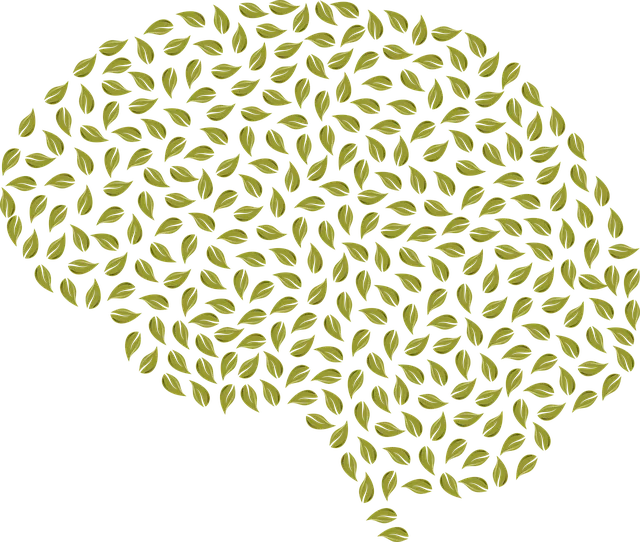Kaiser Permanente's training programs in Lakewood focus on improving mental illness diagnosis accuracy through advanced skills, emotional intelligence, and empathy. These initiatives aim to reduce misdiagnoses, incorrect medications, and negative impacts on patients' quality of life. By enhancing diagnosis precision and promoting holistic well-being, these programs prioritize community engagement and accessibility in mental health care, ultimately leading to better patient outcomes.
Mental illness diagnosis accuracy is a critical aspect of patient care, with significant implications for treatment outcomes. This article explores efforts to enhance diagnosis precision, focusing on innovative initiatives by industry leaders like Kaiser Permanente and the Lakewood Initiative. We delve into the challenges of misdiagnosis, highlighting their impact and the need for evidence-based solutions. Additionally, we examine successful programs, such as Kaiser’s training for mental health professionals and community-focused approaches, offering a comprehensive guide to improving diagnostic accuracy in mental healthcare.
- Understanding the Challenges: Uncovering Misdiagnoses and Their Impact
- Kaiser Permanente's Approach: Training Programs for Mental Health Professionals
- The Lakewood Initiative: A Focus on Community and Accessibility
- Enhancing Diagnosis Techniques: Evidence-Based Practices and Tools
- Measuring Success: Evaluation and Feedback Mechanisms for Improved Accuracy
Understanding the Challenges: Uncovering Misdiagnoses and Their Impact

Mental illness diagnosis is a complex process, often shrouded in challenges that can lead to misdiagnoses. At Kaiser Permanente training programs in Lakewood, efforts are focused on unraveling these complexities. Misdiagnosis rates vary across different mental health conditions, with some being more susceptible than others. For instance, depression might be mistaken for anxiety, or bipolar disorder could be overlooked in favor of unipolar depression. These errors have profound impacts. They can delay essential treatment, lead to inappropriate medications, and negatively affect a patient’s quality of life and overall well-being.
Improving diagnosis accuracy is crucial to enhancing patient outcomes. Kaiser Permanente’s approach involves strengthening Mental Health Awareness among healthcare professionals. This includes emphasizing Emotional Intelligence and Empathy Building Strategies in training programs. By fostering a deeper understanding of the nuances associated with mental illness, healthcare providers can navigate these challenges more effectively. Ultimately, these efforts aim to ensure that individuals receive accurate diagnoses and access to tailored, effective treatments.
Kaiser Permanente's Approach: Training Programs for Mental Health Professionals

Kaiser Permanente, a leading healthcare organization, has taken a significant step towards enhancing mental illness diagnosis accuracy by implementing comprehensive training programs for its mental health professionals in Lakewood. These innovative initiatives focus on empowering practitioners with advanced skills to navigate complex cases and improve patient outcomes. The program involves intensive workshops and ongoing educational sessions, covering various aspects of mental health assessment and treatment.
The training curriculum includes Stress Reduction Methods, Conflict Resolution Techniques, and the development of Public Awareness Campaigns. By equipping professionals with these tools, Kaiser Permanente aims to foster a more nuanced understanding of mental illness, reduce stigma, and improve access to quality care. This strategic approach reflects a commitment to not only enhancing diagnostic accuracy but also promoting holistic well-being within the community.
The Lakewood Initiative: A Focus on Community and Accessibility

The Lakewood Initiative is a pioneering program that emphasizes community engagement and accessibility to enhance mental health care. This initiative, driven by organizations like Kaiser Permanente, focuses on providing comprehensive training programs for healthcare professionals, with a specific emphasis on improving diagnosis accuracy for mental illnesses. By investing in these training programs, Lakewood aims to bridge the gap between clinical practice and real-world challenges faced by communities.
One of its key strategies involves fostering public awareness campaigns that educate both individuals and families about recognizing early signs of mental health issues. Additionally, the initiative promotes inner strength development through various support systems and resources tailored to diverse communities. This holistic approach ensures that not only are professionals better equipped to diagnose mood management conditions but also that individuals in need can access the help they require more easily.
Enhancing Diagnosis Techniques: Evidence-Based Practices and Tools

Mental illness diagnosis accuracy has been a long-standing challenge, but significant strides have been made through evidence-based practices and tools. Organizations like Kaiser Permanente play a pivotal role in this improvement by offering specialized training programs, such as those focused on Mental Health Policy Analysis and Advocacy and Social Skills Training, which equip healthcare professionals with the latest techniques and knowledge. These programs emphasize the importance of understanding not just symptoms but also the socio-cultural context that influences mental health.
One effective approach is the integration of Emotional Regulation strategies into diagnosis routines. By teaching professionals to recognize and interpret emotional cues, these tools enhance the accuracy and consistency of diagnoses. The training also promotes a more holistic view of patient well-being, considering not just clinical presentations but also the individual’s capacity for resilience and coping mechanisms. Such comprehensive approaches are crucial in ensuring that mental illness is diagnosed effectively, leading to improved treatment outcomes.
Measuring Success: Evaluation and Feedback Mechanisms for Improved Accuracy

Evaluating success is a critical component of improving mental illness diagnosis accuracy. Organizations like Kaiser Permanente have implemented training programs in Lakewood and other areas, leveraging advanced techniques and continuous learning to enhance clinical skills. These efforts often involve comprehensive feedback mechanisms where healthcare professionals reflect on their practices, compare outcomes with established standards, and identify areas for improvement. By fostering a culture of ongoing evaluation, mental health providers can ensure they stay current with the latest research and best practices.
Furthermore, initiatives such as the Community Outreach Program Implementation and Mental Wellness Podcast Series Production play a pivotal role in this process. These programs not only educate patients about various aspects of mental wellness but also encourage open dialogue, challenging stereotypes, and promoting positive thinking. Through regular feedback from these initiatives, healthcare systems can gauge their impact, refine strategies, and ultimately improve diagnosis accuracy, leading to better patient outcomes and enhanced service delivery.
Mental illness diagnosis accuracy has seen advancements through initiatives like Kaiser Permanente’s training programs and the Lakewood Initiative, which emphasize community engagement and evidence-based practices. By implementing these efforts, we can ensure more effective treatment plans and improved patient outcomes. Continuously measuring success through evaluation and feedback mechanisms is crucial to refining these strategies, ultimately fostering a more precise and accessible mental health care system for all.





